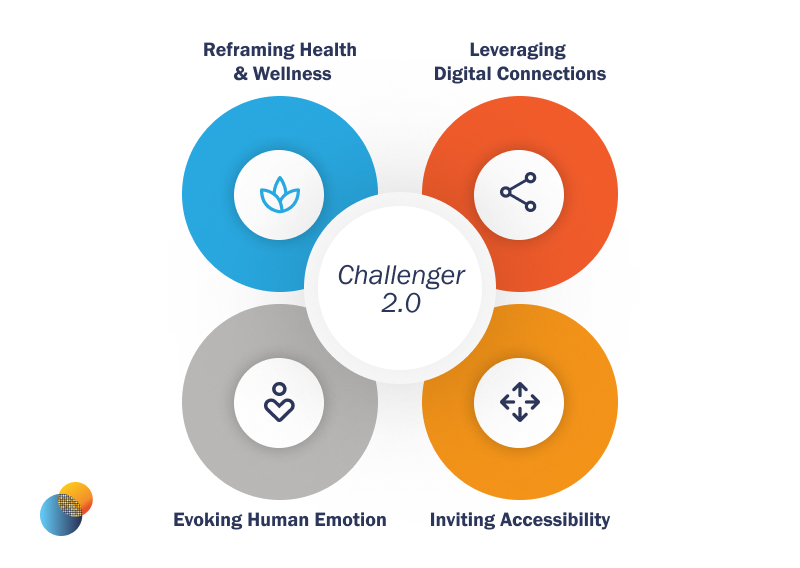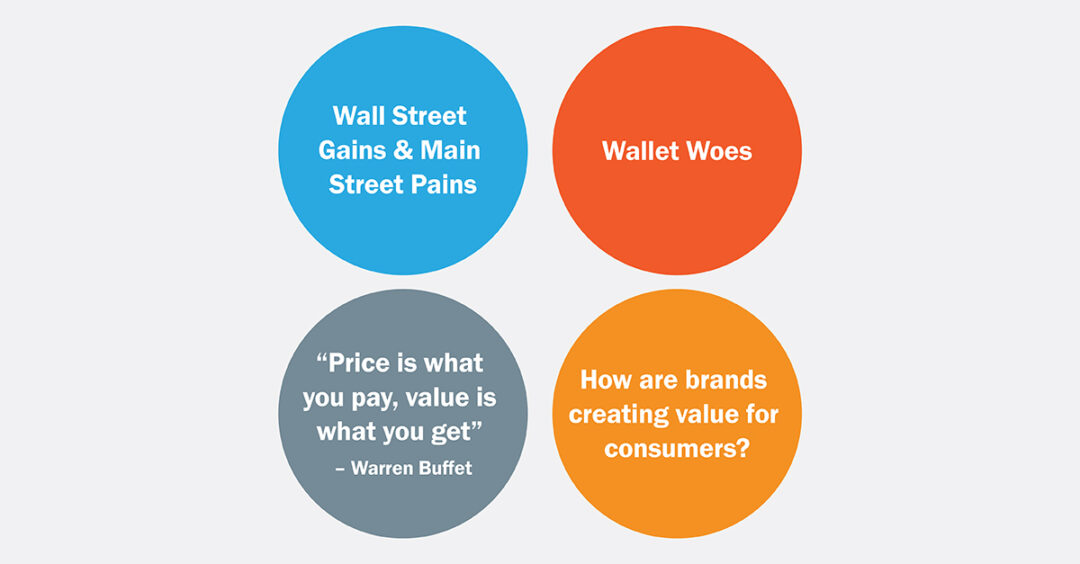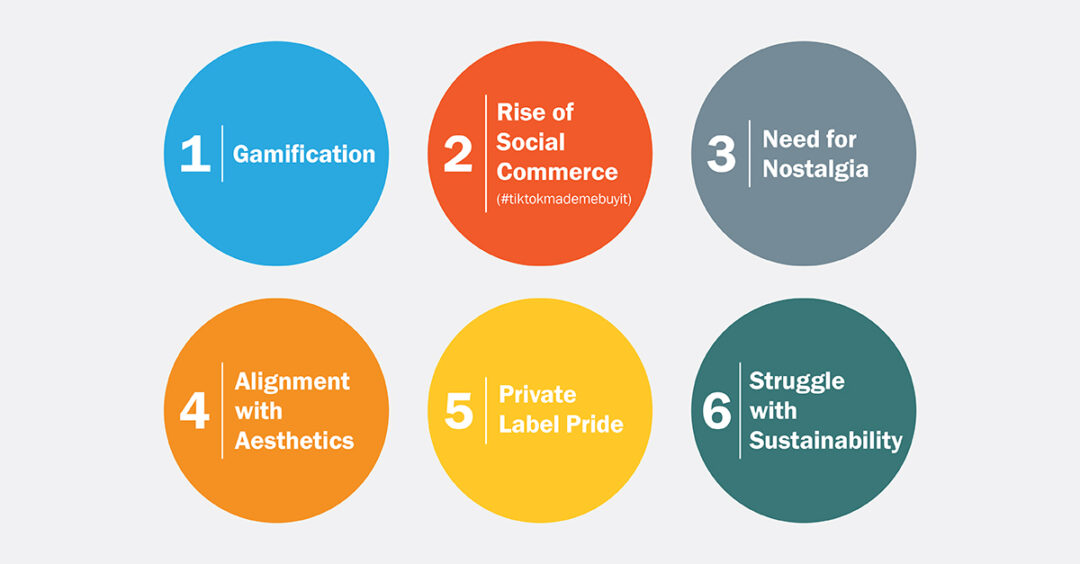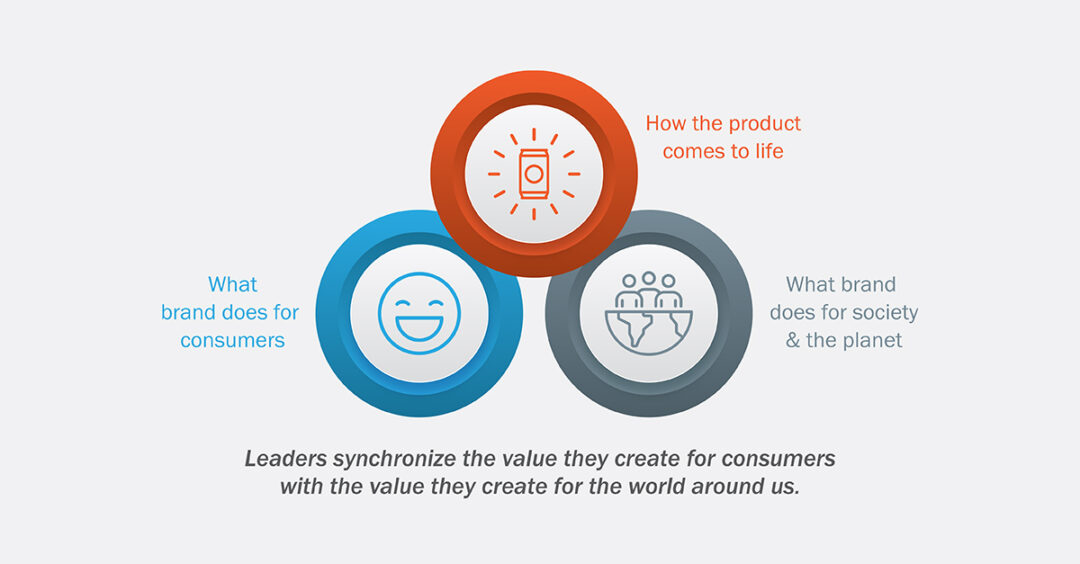2024 Challenger Brand Paper: Breaking Through Via Cultural Connectivity
Introduction
This year’s challenger brand paper highlights the role of cultural connectivity in building breakthrough brands. The U.S.
is becoming increasingly diverse (diversity index +11% over last decade, source), and we consequently see a rise in the importance of cultural sharing & connectivity. Brands able to harness cultural connectivity differentiate themselves and increase their mental availability. Creating cultural connectivity can come to life through democratizing traditional ingredients or recipes, headlining culturally relevant brand origin stories or missions, and engaging with consumers through broader messaging and specific social strategies. Excitingly, this connectivity is reciprocal in nature. As founders and brand builders look to share pieces of their backgrounds, consumers look to widen their world view, incorporate new experiences, and/or find a piece of home by engaging with and learning from brands with strong cultural heritages.
We’ve all seen the challenger brand landscape shift over the past several years: it’s become harder to break through and scale, capital is harder to come by, and exits / acquisition activity is less frequent. Those that have been able to break through often do so via the ability to authentically connect with consumers (and frequently, through cultural connectivity), hence our focus on the phenomenon in this year’s paper.
Cultural connectivity is a relevant driver of value creation across the consumer products landscape. Consumers are swarmed with an abundance of choice, searching for the best products that will permeate their everyday lives. Our paper highlights “breakthrough challenger brands” that have successfully mainstreamed on this thread of cultural connection – creating meaningful consumer share of mind and achieving over $100MM in sales. We also showcase our top emerging challenger brands that are poised for success via growing resonance, stemming from their ability to authentically leverage cultural ties and welcome consumers of all backgrounds.

Food & Beverage
Breakthrough Challengers

Siete
Highlighted by the Seurat challenger paper in 2019, Siete has quickly risen to breakthrough status in just a few short years. Inspired by the founders’ mission to adapt traditional recipes to allow family members on an autoimmune-friendly diet to partake in family meals, Siete strives to reinvent authentic Mexican cuisine with cleaner, healthier ingredients. Their overarching mission has enabled them to successfully expand into a wide swath of categories from tortillas, salsas, and seasoning to cookies. Every aspect of the Siete brand is inspired by the founders’ heritage — from ensuring that every item is approved by their grandmother, to the brand name, which represents the seven members of the Garza family. Since its founding in 2014, Siete has reached $400MM in revenue (2023) (Source).

Momofuku Goods
Momofuku Goods, an offshoot of the famed restaurant group, is bringing its restaurant’s culinary staples– from noodles to sauces– to home chefs. Momofuku’s 20-year heritage in the restaurant industry brings credibility to the line, which has grown a dedicated following worthy of breakthrough status. After research found that 80% of their social media followers didn’t live in cities containing Momofuku restaurants, the team was inspired to create products that gave more fans access to the brand’s recipes. Beyond the restaurant’s reputation for tasty, authentic dishes, the professional kitchen inspired labels on pack bring an elevated level of authenticity to the products, and further bring the restaurant experience home. Clearly, fans from all over are connecting with the brand — Momofuku passed $100MM in annual revenue in 2023, with over 50% derived from its CPG business (Source).

Topo Chico
Topo Chico is a standout example of how to break through in beverage via cultural connectivity. Inspired by the legend of the daughter of Aztec Emperor Moctezuma, the brand has successfully expanded its portfolio beyond the core mineral water to include Sabores, Margaritas, Agua frescas, and hard seltzer with Mexican inspired flavors like guava. Topo Chico leverages the message of ‘follow your thirst for discovery’ to celebrate its ability to draw consumers to new drink types and flavors. Topo Chico as a brand has tremendous badge value, transforming sparkling water from something to be enjoyed to a signifier of exploration and the appreciation for products with a rich history. The brand was acquired by Coca-Cola and surpassed $200MM in sales earlier this decade. (Source)
Emerging Challengers

Bachan’s
You may have noticed Bachan’s unique red squeeze bottle amongst a sea of American-style barbecue sauces. The Japanese barbecue’s unique & delicious flavor is a product of the founders’ painstaking commitment to authenticity. The sauce starts with a recipe that has been passed down for generations and is packaged using a cold-fill technique, which allows the sauce to taste just like the version made fresh in the family kitchen, bringing authentic, tangy flavors from their kitchen to yours. Bachan’s eclipsed $30MM in annual revenue, and recently became the top selling shelf stable barbecue sauce in the natural category (Source).

Yolélé Foods
Yolélé Foods is on a mission to introduce a revolutionary West African ancient grain, Fonio, to the North American market. While Fonio boasts a superior nutritionalprofile to rice or quinoa, it is relatively unknown in America – until now. Yolélé’s convenient preparation and variety of flavors are a delightful invitation for consumers to try the new grain and bring it into their rotation. Ultimately, the brand also hopes to improve economic prosperity for West Africa by increasing demand for Fonio and reinvesting profits back into local communities.

Omsom
With home cooks and food critics alike praising Omsom’s products for their “game changing” sauces, this brand is democratizing access to authentic Asian flavor. Omsom was created by two sisters who were born to Vietnamese immigrants. Their vision was to create products that bring loud & proud Asian flavors to meals any day of the week. Consumers are delighted to be able enjoy the sauces & noodles with ease, and without cultural compromise. The brand leverages social media as a key storytelling mechanism, engaging with their consumers, and speaking on current events. Omsom made its grocery debut in Whole Foods last year. (Source 1, Source 2)

Sanzo
Filipino-American founded Sanzo celebrates its sparkling waters as a way to explore Asian flavors, touting themselves the first Asian-inspired sparkling water made with real fruit and no added sugar. In unique flavors like lychee and calamansi, the brand offers a fresh take on the category. A mission to “bridge cultures by connecting people to authentic flavors” whether these flavors are a “taste of home or a source of discovery” is core to the brand, promoting the idea of wanting to connect over and share culture. (Source)

Bawi
Inspired by the cofounders’ upbringings in Monterrey, Mexico and Austin, TX, Bawi is modernizing the traditional Mexican aqua fresca through a sparkling take that’s nostalgic and new at the same time. Cited as a best new product of 2022 from BevNet, the brand has earned distribution in over 600 stores nationally from Sprouts & Safeway to a myriad of specialty stores. (Source 1, Source 2)
Personal Care / Beauty
Breakthrough Challengers

Briogeo
Built for all hair types and textures, Briogeo is a black-owned haircare brand that has disrupted the industry. As part of the haircare renaissance that hair products aren’t one size fits all, Briogeo helps consumers find the right products for their specific hair needs and goals. Founded on values of love, invention, and inclusivity, Briogeo was created as a means to spread joy and happiness – an ode to CEO + Founder Nancy Twine’s core memories of time spent creating beauty treatments in the kitchen with her mother. The company has succeeded in inviting in a diverse cohort of consumers and generated over $100 million in revenue in 2022. (Source)

Dr. Jart+
Korean skincare brand Dr. Jart+ has broken through the industry by bringing renowned Korean ingredients and skincare practices into the mainstream. Consumers look to K-beauty for skincare done right, and Dr. Jart+ specifically for the proprietary ingredient complexes they’ve developed in the skin-science labs. Consumers have bought into their high-performance derma care earning the brand $500 million in sales in 2019. (Source)
Emerging Challengers

Ceremonia
Ceremonia is a bright spot in hair care, celebrating LatinX heritage through clean hair care solutions made from ingredients popular in Latin American culture. Born from the desire to make hair care more tailored to and accessible to Hispanic consumers – the largest minority in the US – Ceremonia empowers consumers who are rarely centered in this category. In 2022, the company produced $20 million in revenue and became the first Latinx-owned brand fully available in-stores & online at Sephora. (Source 1, Source 2)

Korres
Greek skincare brand Korres harnesses the powerful bounty of Greek biodiversity into personal care products. Driven by the desire to spread the power of rich endemic resources, Korres features ingredients like Greek olive, black pine, and Santorini Grape in their skin & body care products. While larger in Greece with $97 million in sales in 2021, the brand is growing in the US (~$30 million in sales in 2022) as consumers latch onto the magic of ingredients packaged into Korres’ products. (Source)

Eadem
Vegan skincare company Eadem has identified a gap in skincare products designed for darker skin tones. Messaged as skincare “finally made for us,” Eadem puts women of color at the forefront with the goal of bringing skincare solutions to those who have been excluded for far too long, making the industry a more inclusive space. While the company’s revenue is undisclosed, the brand (and especially it’s Milk Marvel Dark Spot Serum) is blowing up online because of its use of science backed and heritage aligned ingredients designed for melanin-rich skin. (Source)

Nopalera
Nopalera is a Chicana-owned clean personal care brand rooted in the cactus – a symbol of Mexican heritage that also has many health benefits. The brand’s star ingredient is the nopal plant, better known as the prickly pear cactus, which is incredibly resilient and thus a representation of Mexican resilience. By bringing this native Mexican powerhouse to the limelight, Nopalera works to spotlight Mexican culture and share it with the world. (Source)
Conclusion
CPG brands leveraging cultural connectivity become part of everyday life, teaching consumers a bit about the world, or making them feel at home.
Our top emerging challenger brands authentically share their cultures as key to their mission and communications, all while encouraging mainstream trial and adoption through accessible entry and education, making their products tailored to their culture, but enjoyable to all. This strategy of cultural sharing creates genuine connections with consumers, allowing those of the same cultures to see more true representation at shelf, and allowing consumers of all backgrounds to learn about, and celebrate new cultures in their everyday lives.
As always, we want to hear from you! If you’d like more information on any of our challenger brand studies, or want to share a brand of your own, please reach out at info@seuratgroup.com.










